Melatonin also protects against heart rhythm disturbances
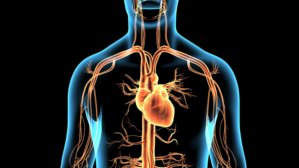 Melatonin is primarily known as a sleep hormone and a powerful antioxidant. According to a new study, melatonin may even improve the condition of rats that have heart rhythm disturbances with an increased risk of heart attack. Melatonin’s ability to improve the heart function is not related to its antioxidant function, however, and that surprised the scientists behind the study. The new study was presented at an annual meeting for the American Physiological Society (APS) in Orlando. Melatonin has several vital functions, but as we age our endogenous production decreases. Not only does this affect our quality of sleep, it also has a negative impact on the heart and the body’s cells.
Melatonin is primarily known as a sleep hormone and a powerful antioxidant. According to a new study, melatonin may even improve the condition of rats that have heart rhythm disturbances with an increased risk of heart attack. Melatonin’s ability to improve the heart function is not related to its antioxidant function, however, and that surprised the scientists behind the study. The new study was presented at an annual meeting for the American Physiological Society (APS) in Orlando. Melatonin has several vital functions, but as we age our endogenous production decreases. Not only does this affect our quality of sleep, it also has a negative impact on the heart and the body’s cells.
Read more about how melatonin even protects against heart rhythm disturbances
- Created on .








 It is commonly known that fish oil with its high content of the two omega-3 fatty acids EPA and DHA helps prevent atherosclerosis. According to a new international study, it appears to be DHA that has the major effect. This new insight, which has surprised the scientists, is relevant to public health because cardiovascular disease continues to be the leading cause of death.
It is commonly known that fish oil with its high content of the two omega-3 fatty acids EPA and DHA helps prevent atherosclerosis. According to a new international study, it appears to be DHA that has the major effect. This new insight, which has surprised the scientists, is relevant to public health because cardiovascular disease continues to be the leading cause of death.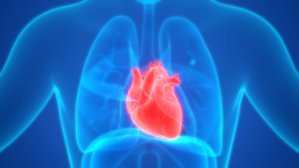 Get lots of sunlight. It is the richest source of
Get lots of sunlight. It is the richest source of  Lack of dietary
Lack of dietary  Sclerosis, rheumatoid arthritis, certain gastrointestinal infections, and a host of other diseases are so-called autoimmune diseases that occur as a result of the immune defense overreacting and attacking the body’s own tissues. Scientists from the University of Edinburgh in Scotland have now mapped out exactly how
Sclerosis, rheumatoid arthritis, certain gastrointestinal infections, and a host of other diseases are so-called autoimmune diseases that occur as a result of the immune defense overreacting and attacking the body’s own tissues. Scientists from the University of Edinburgh in Scotland have now mapped out exactly how 
 Scientists have discovered traces of antibiotic-resistant super bacteria (NDM-1) in the soil of Svalbard. This archipelago is located in the arctic ocean between the North Pole and Norway, several thousand kilometers from India where the bacteria was originally discovered. This is described in a study that is published in the science journal, Environment International. Bacteria with the resistance gene NDM-1 have now spread to a number of other countries and many people have lost their lives to them. Humans are also challenged by other antibiotic-resistant bacteria, and the British health authorities consider this to be a larger threat to humans than climate change. But what causes these bacteria to develop resistance? And what vitamins and minerals are particularly important for bolstering the immune system? After all, our immune defense is our only way of protecting ourselves if antibiotics fail to work.
Scientists have discovered traces of antibiotic-resistant super bacteria (NDM-1) in the soil of Svalbard. This archipelago is located in the arctic ocean between the North Pole and Norway, several thousand kilometers from India where the bacteria was originally discovered. This is described in a study that is published in the science journal, Environment International. Bacteria with the resistance gene NDM-1 have now spread to a number of other countries and many people have lost their lives to them. Humans are also challenged by other antibiotic-resistant bacteria, and the British health authorities consider this to be a larger threat to humans than climate change. But what causes these bacteria to develop resistance? And what vitamins and minerals are particularly important for bolstering the immune system? After all, our immune defense is our only way of protecting ourselves if antibiotics fail to work. Unhealthy eating habits account for one in five deaths globally and are now considered the single most life-threatening risk factor. In most countries, people could reap a lot of health benefits and live longer by eating healthier diets, but it would be wrong to hold each individual responsible because there is an urgent need for international collaboration that involves politicians, agriculture, the food industry, and the health sector, according to a new study (The Global Burden of Disease) that is published in The Lancet. An earlier and larger Czech study published in the science journal Nutrients calls for a paradigm shift with regard to diet recommendations, claiming that the scaremongering about saturated fat and cholesterol should never have been introduced.
Unhealthy eating habits account for one in five deaths globally and are now considered the single most life-threatening risk factor. In most countries, people could reap a lot of health benefits and live longer by eating healthier diets, but it would be wrong to hold each individual responsible because there is an urgent need for international collaboration that involves politicians, agriculture, the food industry, and the health sector, according to a new study (The Global Burden of Disease) that is published in The Lancet. An earlier and larger Czech study published in the science journal Nutrients calls for a paradigm shift with regard to diet recommendations, claiming that the scaremongering about saturated fat and cholesterol should never have been introduced.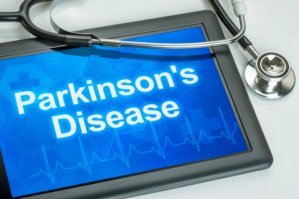 Parkinson’s disease, also known as shaking palsy, is one of the most common chronic disorders among older people. There is no effective cure at this point, and the only way to address the disease is to suppress the symptoms but that does not treat the underlying cause. Even though most cases of Parkinson’s disease are sporadic, it turns out that the hereditary variants of the disease are linked to mutations in a particular gene. A team of scientists from University of the Basque Country in Spain has discovered that
Parkinson’s disease, also known as shaking palsy, is one of the most common chronic disorders among older people. There is no effective cure at this point, and the only way to address the disease is to suppress the symptoms but that does not treat the underlying cause. Even though most cases of Parkinson’s disease are sporadic, it turns out that the hereditary variants of the disease are linked to mutations in a particular gene. A team of scientists from University of the Basque Country in Spain has discovered that 
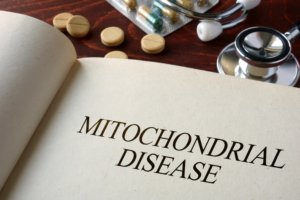 The mitochondria are the powerhouses of our cells that churn out energy in a process that involves oxygen, Q10, selenium, and other nutrients. Around 100 years ago, the German Nobel Prize winner, Professor Otto Warburg, demonstrated that even if cancer can be caused by a number of secondary factors, there is only one primary cause: alterations in the mitochondrial oxygen turnover. In his recent book, Tripping over the Truth, molecular biologist Travis Christoffersen describes how contemporary scientists confirm Warburg’s theories and says that we need to look at prevention and cancer treatment from an entirely different angle. Other studies show that Parkinson’s disease, migraine, senility, chronic fatigue, fibromyalgia, epilepsy, and other neurological disorders may be rooted in defects of the mitochondria that have many other functions besides delivering energy. It is therefore vital to take care of the mitochondria throughout life. You can read more about the ketogenic diet that optimizes mitochondrial energy turnover in different mitochondrial diseases.
The mitochondria are the powerhouses of our cells that churn out energy in a process that involves oxygen, Q10, selenium, and other nutrients. Around 100 years ago, the German Nobel Prize winner, Professor Otto Warburg, demonstrated that even if cancer can be caused by a number of secondary factors, there is only one primary cause: alterations in the mitochondrial oxygen turnover. In his recent book, Tripping over the Truth, molecular biologist Travis Christoffersen describes how contemporary scientists confirm Warburg’s theories and says that we need to look at prevention and cancer treatment from an entirely different angle. Other studies show that Parkinson’s disease, migraine, senility, chronic fatigue, fibromyalgia, epilepsy, and other neurological disorders may be rooted in defects of the mitochondria that have many other functions besides delivering energy. It is therefore vital to take care of the mitochondria throughout life. You can read more about the ketogenic diet that optimizes mitochondrial energy turnover in different mitochondrial diseases.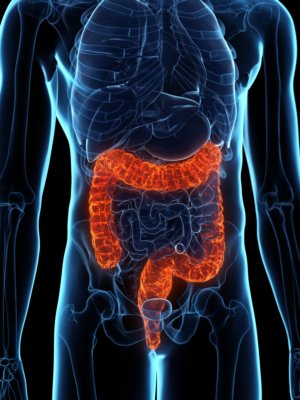 Irritable bowel is the most common intestinal disorder and affects around 15 percent of the population. The symptoms are typically unstable digestion, flatulence, constipation, diarrhea, stomach pain, and intestinal cramps. Several studies have shown that lack of
Irritable bowel is the most common intestinal disorder and affects around 15 percent of the population. The symptoms are typically unstable digestion, flatulence, constipation, diarrhea, stomach pain, and intestinal cramps. Several studies have shown that lack of 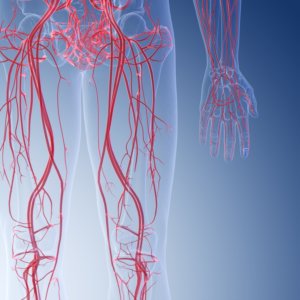 Peripheral circulatory disorders are primarily caused by clogged blood vessels in the extremities. Symptoms typically include walking-induced leg pain, cold hands and feet, or impotence caused by a poor blood supply. According to a new study that is published in the science journal Lipids, people with peripheral circulatory disorders have lower levels of
Peripheral circulatory disorders are primarily caused by clogged blood vessels in the extremities. Symptoms typically include walking-induced leg pain, cold hands and feet, or impotence caused by a poor blood supply. According to a new study that is published in the science journal Lipids, people with peripheral circulatory disorders have lower levels of